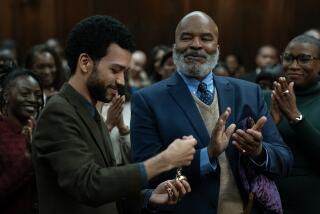‘That Old Cape Magic: A Novel’ by Richard Russo
The Cape Cod Canal, built by the Army Corps of Engineers in 1914, cut through the base of what had been a peninsula, effectively turning the Cape into an island -- a world apart -- accessible by car via two parallel bridges. In Richard Russo’s seventh novel, the eastbound lanes of the Sagamore Bridge, built in 1933-35 by the Public Works Administration, lead to a finer, promised land. Heading west, however, his characters see the Sagamore as a bridge to nowhere.
“That Old Cape Magic” -- bookended by two weddings that are a year apart in tony, coastal locales on Cape Cod and in Maine -- is something of a geographical and stylistic departure for Russo. In his other novels with vaguely watery titles, including “The Risk Pool” (1988), his Pulitzer Prize-winning “Empire Falls” (2001) and “Bridge of Sighs” (2007), Russo staked his literary turf in crumbling blue-collar factory towns, many in “the Rust Belt of western New York State,” where he grew up.
Russo’s new novel bears more in common with his 1997 campus satire, “Straight Man,” also a serio-comic take on a comfortable, tenured middle-aged English professor reassessing his relationship with his professor father. “That Old Cape Magic” adds slapstick to the mix, including a disastrous rehearsal dinner, during which the bride’s wheelchair-bound grandfather lands in a hedge, while her estranged parents end up in the ER -- a scene that would probably play even better on film than on the page. When essentially serious literary novelists venture into physical or screwball comedy -- as did Ron Hansen in “Isn’t It Romantic?” and Robert Hellenga in “Philosophy Made Simple” -- it often seems as if they are amping up the silliness quotient with an eye on the big screen.
Jack Griffin, Russo’s protagonist, is a former screenwriter and tenured English professor at a prestigious Connecticut liberal arts college who’s having a late-midlife meltdown. It is triggered, in part, by the loss of his impossible parents (also academics), about whom he’s always been ambivalent, and in part by the impending “loss” of his only child, Laura, to marriage. More than 30 years into his own marriage, Griffin, at 55, is forced to come to terms with the whole concept of family.
Griffin’s “divisive and quarrelsome” parents are wonderfully awful creations, intellectual snobs from upstate New York. Despite illustrious academic pedigrees, they end up, to their bitter disappointment, at the only place that would hire them, a huge state university in what they constantly refer to as “a phrase they didn’t say so much as spit.” Unwilling to acknowledge that they really live in Indiana, every year they rent houses from colleagues on sabbatical, always leaving them the worse for wear.
Their respite from the Midwest, encapsulating their dreams of a finer place and keeping them together despite serial infidelities, is their annual summer vacation on Cape Cod. This is ushered in each year by singing -- with irony befitting two English professors -- “That Old Black Magic” as they cross the Sagamore Bridge, substituting the word “Cape” for “Black.” Their favorite pastime is looking at real estate, which they cynically divide into two categories: Can’t Afford It or Wouldn’t Have It As a Gift.
At the novel’s start, Griffin drives that same bridge humming the old tune on his way to scatter his father’s ashes and attend Laura’s best friend’s wedding. His mother calls repeatedly, expressing jealous indignation at the thought of her ex-husband taking up residence on the Cape while she’s stuck in a Midwestern assisted-living facility. Griffin says, “I was remembering how happy you both got on the Sagamore Bridge, how you sang ‘That Old Cape Magic’ . . . . As if happiness were a place.”
Much of Russo’s novel takes place inside Griffin’s head, with flashbacks to his childhood and running commentary from his absent, acerbic parents. The recurrent theme is his sense of neglect. But he finds, to his annoyance -- and his wife’s -- that he isn’t ready to let go of them and “the continuing psychodrama of their . . . screwed-up lives.”
Given his lonely childhood, it isn’t hard to see why Griffin was drawn to his wife, the aptly named Joy. Russo describes her as being wired for contentment, which makes her role in the brilliantly rendered, escalating argument with Griffin the day after Laura’s engagement announcement -- and their sudden separation -- somewhat puzzling. What Joy recognizes and Griffin has to face is that he has absorbed more of his parents’ misanthropy and capacity for misery than he thinks. He also needs to realize that his attitude toward Joy’s big, friendly, overbearing family -- “a simple, equitable policy: a plague on both their houses” -- has failed to take into account that Joy actually loves even her oafish twin brothers.
Russo pulls off some fun riffs, including a comparison of the “leftovers” table at weddings to assisted-living facilities, “table seventeens for the elderly, where virtual strangers were thrust into proximity by neither affection nor blood nor common interest, only by circumstance: age and declining health.”
“That Old Cape Magic” is eminently filmable -- two weddings and two urns of cremains in search of release, if not a funeral. It boasts a tight single-year timeline, photogenic locations, lots of physical comedy and snappy dialogue. But readers looking for the warmth and complexity of that old Russo magic may prefer his harder-hitting, small-town novels.
McAlpin reviews books for Newsday, the Boston Globe and other publications.
More to Read
The biggest entertainment stories
Get our big stories about Hollywood, film, television, music, arts, culture and more right in your inbox as soon as they publish.
You may occasionally receive promotional content from the Los Angeles Times.






